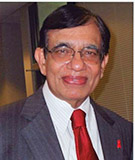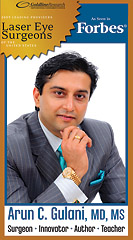
The Science of Organ Transplantation – Part VIII

KEEP YOUR KIDNEYS HEALTHY: HERE’S HOW
In continuing with our discussion on “how to keep your kidneys healthy and prevent or control the common kidney diseases,” here are a few more tips for you to follow.
6. Control your lipids
The calorie-rich, sugary, salty, fried and fatty food we eat daily may be killing us! Controlling the intake of your saturated fats, which in turn brings down your blood cholesterol level, is important not only to prevent heart disease but also protect the health of the kidneys. You are already familiar with the fat components that we measure in the blood like total cholesterol, triglycerides, LDL (low density lipoproteins or bad cholesterol) and HDL (high density lipoproteins) that are generally considered “good cholesterol.” However, they may not necessarily give as much protection to the heart as we once thought. And high levels of others will lead to vascular atherosclerosis. Well known to cause heart attacks and strokes, this process can also contribute to renal disease. In fact, the main renal artery may often be the site of plaque deposition, a condition called renal artery stenosis that eventually leads to hypertension and renal damage. The key here is to get your LDL levels to as low as possible and in high-risk people, especially we Indians, the ideal level is below 70 mg/dl.
7. Control your urge to take analgesics
All of us have a tendency to pop in a pill for quick relief when we get some aches and pains. Certain pain medications (analgesics) when taken in excess can damage the kidneys. This is known as analgesic nephropathy. Included in this category are drugs like aspirin, phenacetin, paracetamol and a group of drugs called “NSAIDS” or non-steroidal anti-inflammatory drugs. The latter consists of such drugs as ibuprofen, indomethacin, Naprosyn and COX 2 inhibitors like Celebrex. The condition results from chronic use and abuse of these drugs. In many countries, analgesic nephropathy accounts for 10 percent or more of the dialysis patients. These are easily preventable, so take proper precautions.
8. Drug abuse can damage the kidneys
Your kidneys can be easily wrecked by substance abuse. Intravenous heroin or cocaine, inhalant substances like amyl nitrate, benzene and Freon, MDMA, (amphetamines) also known as ecstasy, LSD (acid) and PCP (angel dust), all can lead to kidney damage. I have seen at least one young man, a heroin addict in acute respiratory and renal failure, who was brought to the emergency room after an evening of drug indulgence and partying. Many, especially those who shoot cocaine and heroin, develop a type of “vasculitis” or inflammation of the blood vessels that curtails the blood flow to the kidneys. Currently, the nation is going through an “opioid epidemic” that’s killing tens of thousands of people. Opioids also severely damage the kidneys.
9. Beware of procedures using contrast dyes
Some of the tests and procedures used for diagnosis and treatment of your illness include intravenous injections of radio-opaque iodine contrast agents or dyes such as Omnipaque and Visipaque that can worsen kidney function if you already have early kidney disease. The level of kidney damage is often related to the amount of dye injected. So make your physician aware of your kidney problems, if you have any, and consult a kidney specialist before undergoing such procedures. There are ways to get around this by hydrating the patient well with fluids before the procedure, minimizing the amount of contrast used, use a sodium bicarbonate (an alkali) infusion to prevent acidosis and an oral administration of Mucomyst, a medicine that prevents contrast-induced renal damage. One may consider alternate tests such as MRI that do not need contrast injection. I have seen patients going into frank kidney failure after coronary angiography using only a moderate amount of contrast.
10. Periodic kidney evaluation
As part of your regular annual physical, it’s also good to get the renal function tests and your family physician will order these tests as needed. It’s important for you to understand the numbers that show up on your report and their significance. The usual tests for kidney function include BUN (Blood Urea Nitrogen), Serum Creatinine and Urinalysis. Even a small amount of protein (albumin) in the urine is a cause for concern and will put your doctor on alert. Most insurance companies cover these basic blood tests done as part of your annual preventive checkup, especially if there is a history of hypertension, diabetes, obesity or any other major risk factors.
These are some of the tips that will help you to maintain the health of your kidneys. There are no specific food supplements or drugs to preserve the kidneys’ health. Whatever you do to protect your heart and brain is usually good for your kidneys, too.
To be continued …
M.P. Ravindra Nathan, M.D., is a cardiologist and Emeritus Editor of AAPI Journal. For further reading, “Second Chance - A Sister’s Act of Love” by Dr. Nathan from Outskirts Press, can be found at www.amazon.com
EYE CARE
LAZRPLASTIQUE™ iS THE NextGen LASIK surgery!

In July, the Wall Street Journal carried a major story on pain and dryness after Lasik surgery warning the local consumers blinded by Lasik deals, “cookie-cutter” and “one size fits all” Lasik techniques. It is apt that my most important advice and dictum in the world of Lasik be served again.
Having interviewed all over the nation in different news media, I shared my concerns over the article and educative points for consumers therein, as also for Lasik surgeons.
As I have often repeated in many columns here (KhaasBaat), Lasik is only one among 20 different laser vision techniques among nearly 40 vision corrective techniques (surgeries to get rid of glasses and contact lenses) among innumerable combinations and permutations. So, don’t ask for Lasik, ask for what procedure and technology is right for you.
Side effects and complications from Lasik surgery are real and though rare, can change your life for the worse. Despite 70% of my practice being devoted to receiving patients referred from all over the world with Lasik complications, and in most of the cases I having successfully restored their vision, I still say that prevention is the best strategy!
Mistakes can happen and surgery is never guaranteed but to go into an elective surgery (Lasik) and end up with poor vision or adverse symptoms, is unacceptable.
Falling for price deals and Groupon or thinking you can have Lasik during lunch hour or on a weekend sounds great but please do your due diligence.
Follow my five checkpoints, please:
- Do check your Lasik surgeon’s credentials. If they say they advertise saying they are the best, first or renowned, ask for proof.
- Do review your Lasik surgeon’s background and track record.
- Meet with your Lasik surgeon and ask the questions as to why they have selected that particular surgery for you and are they trained in all vision corrective techniques, including complication management.
- Do insist on being seen by your Lasik surgeon before, during and after Lasik surgery.
- Ensure you can contact your Lasik surgeon any time after surgery.
Notice all my points include Lasik surgeon (surgeon, surgeon, surgeon). Nothing else matters!
Do not fall for any flashy technology promises or deals or guarantees. In my three decades of fixing these complications for Lasik surgeons, the technology they used did not matter.
Most of the complications of Lasik surgery (like dry eyes, scars, irregular vision) happen due the cutting of the corneal flap (done with a blade or laser).
Lazrplastique™: Over three decades, I have honed a technique beyond regular Lasik surgery, which without cutting, delivers vision thus maintaining the integrity of the cornea, avoiding side effects and yet delivering vision with a safe and consistent track record.
As more Lasik surgeons worldwide get trained in this technique and its nuances, I believe the already rare complications of Lasik shall further decrease. Everybody deserves to see without glasses and contact lenses and enjoy their visual freedom maximized to their best vision potential.
That dream of mine for the entire world is round the corner now but may I request you to be vigilant about your own eye health and do your due diligence.
Arun C. Gulani, M.D., M.S., is director and chief surgeon of Gulani Vision Institute in Jacksonville. He can be reached at [email protected] or visit www.gulanivision.com